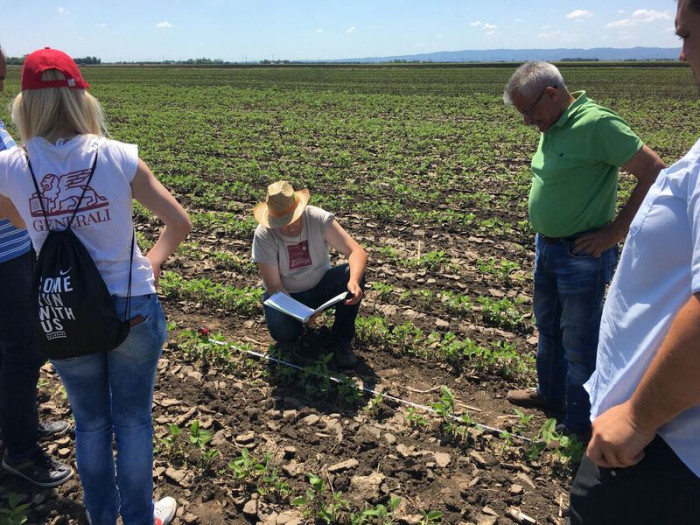
One of the recent main activities within our project for KfW on Agricultural Insurance in Serbia has been capacity development in the field of Loss Adjustment. Within this field of action the experts conducted various activities to assure knowledge transfer and increased capacities, amongst which:
- Set-up of concise Loss Adjustment Guidelines for our field crops, based on highest international standards;
- Both theoretical and practical training to staff of the insurance stakeholder, Generali Insurance.
The training activities aimed at building capacity for practicing agricultural field underwriting and loss adjustment for the six selected crops (wheat, barley, corn, sunflower, soya bean and sugar beet). The training was delivered to the employees of Generali Insurance Serbia in May and June 2017.
The tailored training program considered existing local experience and practice in Serbia, which was adjusted to international best practices (Canada, USA, Germany, Switzerland, Austria and Turkey). The developed training program included:
- Elaborating and approving the methodological guidelines for adjusting losses in agriculture with our partner insurance company;
- Distributing the e-version of the methodology in Serbian/English to the trainees;
- Assessing the existing knowledge of the trainees through an online-based E-Test;
- Delivering the theoretical training module (one full day ) as classroom training;
- Conducting a one-day practical training in the field and based on real losses.
During the theoretical module the 12 participating trainees received the Guidelines for loss adjustment covering the six crops, which was highly acknowledged by all participants as helpful reference material. Within the theoretical module of the training the following topics were covered:
- Basics of agricultural insurance;
- Agricultural risks;
- Underwriting in agricultural insurance;
- Specifics of crop production in Serbia;
- General Loss Adjustment Guidelines (applicable to all crops);
- Specific Loss Adjustment Guidelines attributed to each of six selected crops.
Following the theoretical module practical field training was conducted based on a recent severe hail event, which occurred about two weeks prior to the training. In the affected area all six focus crops were grown.
Practicing at fields, trainees were split into two groups. Each made their own test measurements for each damaged crop. The results of both groups were compared and discussed and finally checked against the real indicators identified at time of actual loss adjustment; and both values appeared to be almost identical. The deviation in final calculations for each crop constituted less than 5%, which is an internationally acceptable deviation rate. Practical samplings and calculations according to the guidelines were confirmed to be effective, stating a very high quality outcome of the training and this major set of activities within the project.
All participants of the training received a certificate confirming their successful completion of both Theoretical and Practical Training Modules on Agricultural Loss Adjustment.
For more information please contact Jakob.Lutz [at] afci.de or Yan Shynkarenko, CEO of AgroInsurance International LLC: yshynkarenko [at] agroinsurance.com ; www.agroinsurance.com
